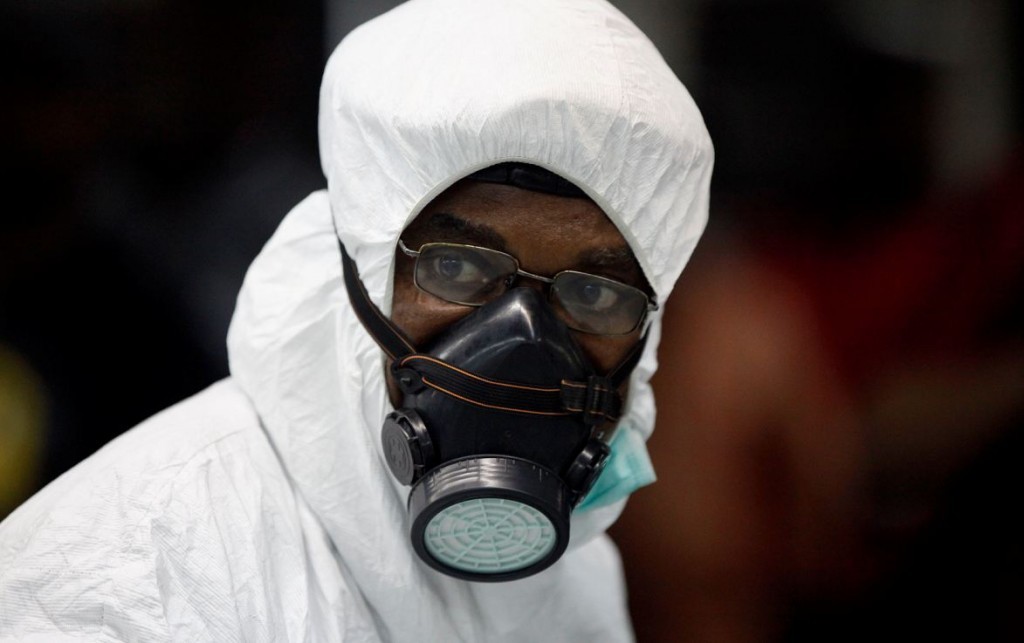
Scotland is to get a new testing facility to help identify any possible cases of the deadly Ebola virus, the Health Secretary has announced.
Alex Neil said the new centre, which will be established in the Lothian area in a few weeks’ time, meant that medics would not have to send blood samples south of the border to discover if patients had the disease.
The Scottish Government is providing funding to NHS Lothian to provide a testing service for viral haemorrhagic fevers – such as Ebola and yellow fever – from the start of December.
Mr Neil also announced that oil and gas workers travelling to and from parts of west Africa that have been affected by the Ebola outbreak would be subject to the same monitoring arrangements as volunteers and aid workers who are providing assistance in west African countries such as Sierra Leone, Liberia and Guinea.
While he said he was not convinced it was “proportionate or necessary” for people arriving in Scotland to be screened for the disease, the Health Secretary confirmed: “I am ready to implement screening if our assessment changes.”
He added: “We are also working with the oil and gas industry to ensure that any of the oil and gas workers coming or going to affected countries will have access to the same type and quality of monitoring arrangements which are in place for medical volunteers.”
Mr Neil told MSPs at Holyrood: “The public should be reassured the risk of Ebola coming to Scotland is still very low and if it does arrive here the National Health Service is ready to respond and public health will be protected.”
He said that “given the importance of ensuring we can identify and diagnose possible cases of Ebola we have provided funding to NHS Lothian to introduce a national testing service viral haemorrhagic fevers in Scotland”.
Mr Neil confirmed: “That service, which will be in place from December 1, means that blood samples will no longer need to be sent to the south of England for testing and we will have the results more quickly.”
He described the outbreak of Ebola in west Africa as being “nothing short of a pubic health disaster in the affected countries”, with the latest figures from the World Health Organisation showing 10,141 cases of the disease with 4,922 deaths.
“There is no sign yet that the epidemic is under control but Scotland will play our full part in contributing to the international effort, along with our friends in the rest of the UK and elsewhere, to bring it under control in west Africa,” Mr Neil said.
He said 59 professionals from NHS Scotland had already offered to help, with some of these already out in the affected region.
Mr Neil stressed there were “robust arrangements” in place to protect these volunteers from the virus, saying: “We know who is going to west Africa, we know they will be trained before they go and when they arrive, we are confident they will be looked after when they are there and they will be monitored and supported when they return.”
The Health Secretary insisted the chance of the disease arriving in Scotland was “very low” as there are no direct flights with affected countries and screening is already in place in airports in London and other European airports.
He added: “Even if a case does appear in Scotland or the UK it is very unlikely we will see any transmission of the virus – the disease can only be caught through blood and other body fluids, and affected individuals will be unwell and have a fever and other symptoms that are not infectious which will lead them to healthcare well before they are likely to pass the virus to other people.
“We must keep the risks in perspective but we must also be ready to respond, that’s why we have been working with the NHS to ensure we are prepared and ready.”
Mr Neil said he was “confident we are ready to safely manage any possible case should one emerge”.
He stressed: “The public should be reassured the risk of Ebola coming to Scotland is still very low and if it does arrive here the National Health Service is ready to respond and public health will be protected.”
